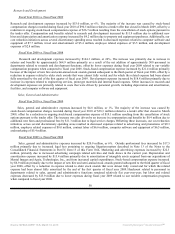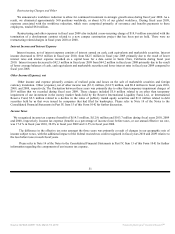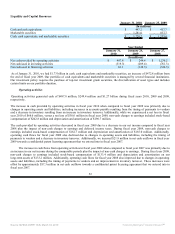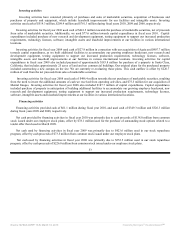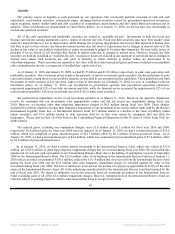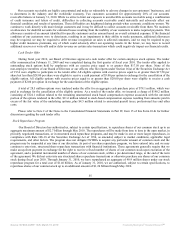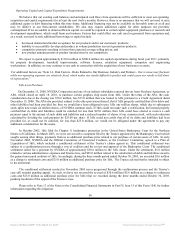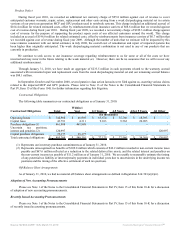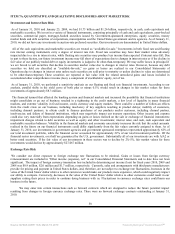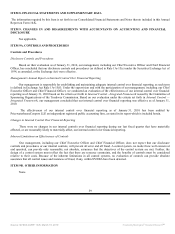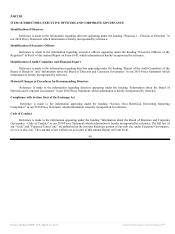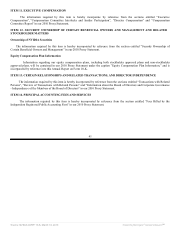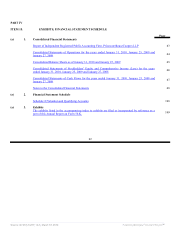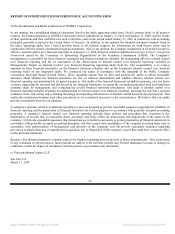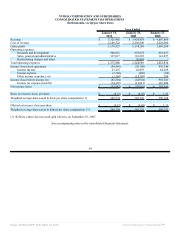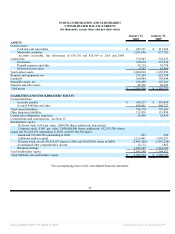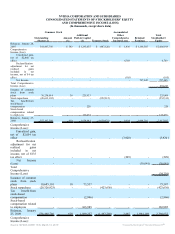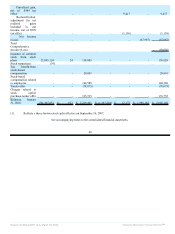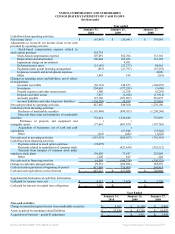NVIDIA 2010 Annual Report Download - page 74
Download and view the complete annual report
Please find page 74 of the 2010 NVIDIA annual report below. You can navigate through the pages in the report by either clicking on the pages listed below, or by using the keyword search tool below to find specific information within the annual report.
ITEM 8. FINANCIAL STATEMENTS AND SUPPLEMENTARY DATA
The information required by this Item is set forth in our Consolidated Financial Statements and Notes thereto included in this Annual
Report on Form 10-K.
ITEM 9. CHANGES IN AND DISAGREEMENTS WITH ACCOUNTANTS ON ACCOUNTING AND FINANCIAL
DISCLOSURE
Not applicable.
ITEM 9A. CONTROLS AND PROCEDURES
Controls and Procedures
Disclosure Controls and Procedures
Based on their evaluation as of January 31, 2010, our management, including our Chief Executive Officer and Chief Financial
Officer, has concluded that our disclosure controls and procedures (as defined in Rule 13a-15(e) under the Securities Exchange Act of
1934, as amended, or the Exchange Act) were effective.
Management’s Annual Report on Internal Control Over Financial Reporting
Our management is responsible for establishing and maintaining adequate internal control over financial reporting, as such term
is defined in Exchange Act Rule 13a-15(f). Under the supervision and with the participation of our management, including our Chief
Executive Officer and Chief Financial Officer, we conducted an evaluation of the effectiveness of our internal control over financial
reporting as of January 31, 2010 based on the criteria set forth in Internal Control - Integrated Framework issued by the Committee of
Sponsoring Organizations of the Treadway Commission. Based on our evaluation under the criteria set forth in Internal Control —
Integrated Framework, our management concluded that our internal control over financial reporting was effective as of January 31,
2010.
The effectiveness of our internal control over financial reporting as of January 31, 2010 has been audited by
PricewaterhouseCoopers LLP, an independent registered public accounting firm, as stated in its report which is included herein.
Changes in Internal Control Over Financial Reporting
There were no changes in our internal controls over financial reporting during our last fiscal quarter that have materially
affected, or are reasonably likely to materially affect, our internal control over financial reporting.
Inherent Limitations on Effectiveness of Controls
Our management, including our Chief Executive Officer and Chief Financial Officer, does not expect that our disclosure
controls and procedures or our internal controls, will prevent all error and all fraud. A control system, no matter how well conceived
and operated, can provide only reasonable, not absolute, assurance that the objectives of the control system are met. Further, the
design of a control system must reflect the fact that there are resource constraints, and the benefits of controls must be considered
relative to their costs. Because of the inherent limitations in all control systems, no evaluation of controls can provide absolute
assurance that all control issues and instances of fraud, if any, within NVIDIA have been detected.
ITEM 9B. OTHER INFORMATION
None.
59
Source: NVIDIA CORP, 10-K, March 18, 2010 Powered by Morningstar® Document Research℠


